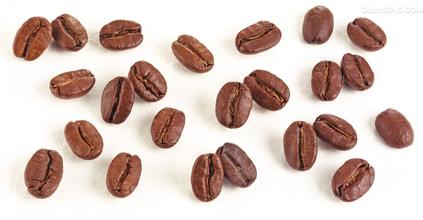Kenya coffee beans estate production area flavor description processing variety characteristics production area introduction
Introduction to the Flavor description and treatment of Coffee Bean in Kenya
The Kenyan government takes the coffee industry very seriously, where it is illegal to cut down or destroy coffee trees. Kenyan coffee buyers are world-class high-quality coffee buyers, and no other country can grow, produce and sell coffee on a continuous basis like Kenya. All coffee beans are first purchased by the Kenya Coffee Commission, where they are identified, graded, and then sold at weekly auctions, where they are no longer graded. The best coffee grade is bean berry coffee (PB), followed by AA++, AA+, AA, AB and so on. The fine coffee is shiny, delicious and slightly alcoholic. Kenyan Coffee has become more famous with the sensation of the Hollywood movie "out of Africa". Karen, the heroine played by Meryl Streep, is a writer and coffee planter. Many people probably remember Karen's yellow-and-white linen dress, the beautiful scenery and the magnificent sunset. What is even more unforgettable is that Karen's dream of having a coffee plantation in Africa entered Kenya in the 19th century. at that time, Ethiopian coffee drinks were imported to Kenya from southern Yemen. But it was not until the early 20th century that the bourbon was introduced by the St. Austen Mission.
Kenyan coffee is mostly grown at an altitude of 1500 mi 2100 meters and is harvested twice a year. Kenyan industrious people love coffee as much as lovers in love.
Accounting for 55% of Kenya's total coffee production (40% of the number of estates) is run by numerous small operators. Seeing that coffee is absolutely profitable, these small operators continue to increase the need for agronomy and the development of high-quality coffee tree species, thus greatly promoting the development of coffee in Kenya.
To ensure that only ripe coffee fruits are picked, people must tour the forest about seven times. After they harvest the coffee, they first send the coffee beans to the cooperative cleaning station, where the sun-dried coffee is sent to the cooperative in the form of "parchment coffee beans" (that is, coffee beans covered with endocarp) ("parchment coffee" is the last state of coffee beans before peeling).

Important Notice :
前街咖啡 FrontStreet Coffee has moved to new addredd:
FrontStreet Coffee Address: 315,Donghua East Road,GuangZhou
Tel:020 38364473
- Prev

El Pacamara Coffee Bean Flavor Description Taste Manor Area Treatment Introduction
Since 2000, after careful analysis of the international market, Conseil Hou decided to focus on bourbon as a revitalization plan for the coffee industry. At the same time, he joined the Excellence Cup coffee competition in 2003. These two decisions brought a glimmer of life to Saaraway coffee, activated the market and improved visibility.
- Next

Flavor description of Panamanian Hartmann Coffee Bean introduction of Grinding scale for Regional treatment of varieties
The red wine treatment of Panamanian coffee beans refers to the fermentation process of wine treatment. The selected coffee cherries are placed by farmers in sealed metal containers for anaerobic fermentation. The PH value in the fermentation process, the type and number of bacteria involved in fermentation and other factors are purposefully controlled, even temperature and humidity, to ensure the quality of coffee beans, closed fermentation makes more aromatic.
Related
- Detailed explanation of Jadeite planting Land in Panamanian Jadeite Manor introduction to the grading system of Jadeite competitive bidding, Red bid, Green bid and Rose Summer
- Story of Coffee planting in Brenka region of Costa Rica Stonehenge Manor anaerobic heavy honey treatment of flavor mouth
- What's on the barrel of Blue Mountain Coffee beans?
- Can American coffee also pull flowers? How to use hot American style to pull out a good-looking pattern?
- Can you make a cold extract with coffee beans? What is the right proportion for cold-extracted coffee formula?
- Indonesian PWN Gold Mandrine Coffee Origin Features Flavor How to Chong? Mandolin coffee is American.
- A brief introduction to the flavor characteristics of Brazilian yellow bourbon coffee beans
- What is the effect of different water quality on the flavor of cold-extracted coffee? What kind of water is best for brewing coffee?
- Why do you think of Rose Summer whenever you mention Panamanian coffee?
- Introduction to the characteristics of authentic blue mountain coffee bean producing areas? What is the CIB Coffee Authority in Jamaica?

